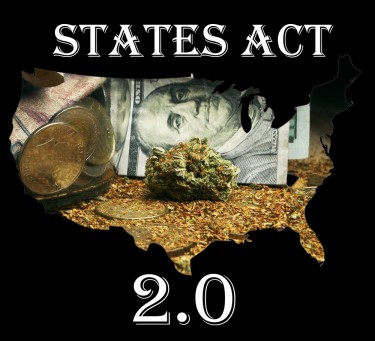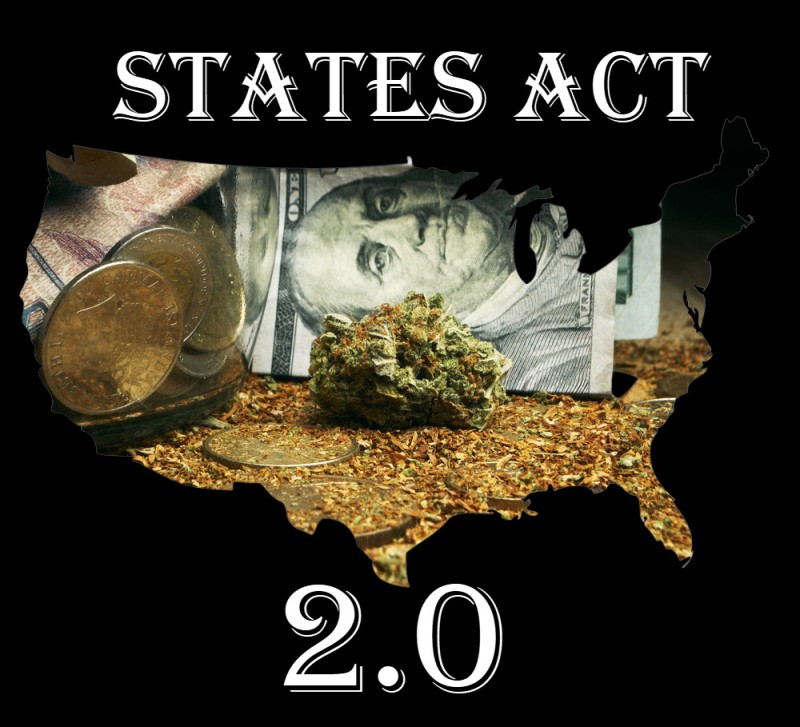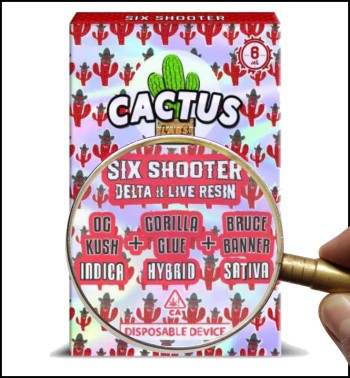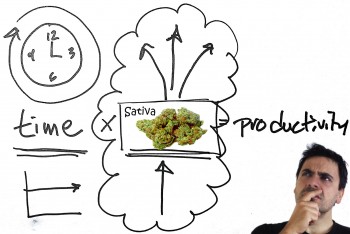
When I first heard about a former NYPD officer advocating for cannabis descheduling, I had to do a double-take. Jillian Snider, who once arrested countless people for marijuana possession, is now one of the strongest voices calling for its removal from the Controlled Substances Act through the STATES 2.0 Act. Her journey from enforcer to advocate mirrors a broader shift happening across America—one where those who once stood on the front lines of prohibition are now questioning its very foundation.
For decades, we've watched the absurd theater of cannabis prohibition play out: federal agents raiding state-legal businesses, veterans denied access to medical marijuana by their VA doctors, and billions in tax revenue going to cartels instead of communities. The STATES 2.0 Act offers a pragmatic solution that honors the conservative principle of states' rights while addressing the liberal concern for social justice.
What's particularly striking is that law enforcement professionals like Snider aren't calling for anarchy—they're simply acknowledging reality. With 39 states permitting medical cannabis and 24 allowing recreational use, the federal prohibition has become an awkward relic, creating more problems than it solves. Their message is clear: Congress created this mess through the Controlled Substances Act, and it's Congress's duty to fix it.
From Cop to Cannabis Advocate: The Evolving Law Enforcement Perspective
In the source article, Jillian Snider shares a remarkable personal evolution. "As a member of the New York Police Department, I made more marijuana arrests than I can count," she writes. Most of these arrests were for trivial amounts—"a joint on a stoop, a dime bag in a pocket." Like thousands of officers across America, she was simply following protocol during an era when zero-tolerance policies reigned supreme.
But something changed after years on the job. Snider began to recognize that these arrests weren't making communities safer—they were consuming precious resources that could be directed toward addressing violent crime. She watched as lives were derailed over minor cannabis possession, creating criminal records that followed people for decades, affecting their ability to secure housing, employment, and education.
Snider isn't alone in this realization. Organizations like Law Enforcement Action Partnership (LEAP) have emerged, consisting of former police officers, judges, prosecutors, and other criminal justice professionals who support drug policy reform based on their firsthand experience with its failures. These aren't soft-on-crime liberals—many are conservative, by-the-book professionals who have concluded that cannabis prohibition simply doesn't work.
What these law enforcement veterans understand is that prohibition creates more problems than it solves. It fosters distrust between police and communities. It diverts resources from investigating violent crimes. It creates dangerous conditions for cannabis businesses forced to operate on a cash-only basis due to banking restrictions. In 2022 alone, over 225,000 people were arrested for marijuana offenses nationwide, most for simple possession—a staggering waste of resources given the public's changing attitudes toward cannabis.
This perspective shift within law enforcement circles represents one of the most powerful arguments for the STATES 2.0 Act. When those who once enforced marijuana laws are saying the system is broken, it's time for Congress to listen. These aren't theoretical policy debates—these are assessments from professionals who have seen firsthand how prohibition fails to serve public safety.
Why the STATES 2.0 Act is the Common-Sense Solution
The bipartisan STATES 2.0 Act offers perhaps the most pragmatic approach to cannabis reform we've seen yet. Unlike bills that attempt to micromanage cannabis regulation from Washington, this legislation simply removes cannabis from the Controlled Substances Act and gets the federal government out of the way, allowing states to determine their own policies.
This approach honors a principle that transcends party lines—that cannabis policy should be left to the states. Even President Trump expressed support for this idea in 2018, and the STATES 2.0 Act makes good on that promise while addressing some of the most dysfunctional aspects of federal drug policy.
The current situation is untenable. Consider the banking dilemma: state-legal cannabis businesses are forced to operate primarily in cash because federal regulations prevent them from accessing basic banking services. This cash-heavy environment makes these businesses prime targets for robbery, putting employees and communities at risk. No other legal industry faces these unnecessary dangers.
Then there's the research bottleneck. Cannabis's Schedule I classification has severely restricted scientific study, hampering our understanding of both its potential benefits and risks. Doctors treating veterans with PTSD, patients with chronic pain, and individuals with epilepsy are operating with one hand tied behind their backs due to federal restrictions on research.
Perhaps most importantly, the STATES 2.0 Act would restore consistency to our legal system. The current patchwork of contradictory state and federal laws creates confusion for consumers, businesses, and law enforcement alike. If you can legally purchase cannabis in Colorado but face federal penalties for using it in a neighboring state, the system lacks basic coherence.
The beauty of this legislation is that it doesn't force legalization on unwilling states—it simply allows each state to determine its own path forward without federal interference. This approach has garnered support across the political spectrum, with nearly 90 percent of Americans now supporting marijuana legalization in some form. In today's polarized political environment, that kind of consensus is remarkable.
The Sticky Bottom Line: Congress Created This Mess, Congress Must Fix It
Let's be crystal clear about one thing: the classification of cannabis as a Schedule I substance—alongside heroin and above fentanyl—wasn't some natural law of the universe. It was a decision made by Congress when they passed the Controlled Substances Act in 1970, largely based on politics rather than science or public health concerns.
Now, over five decades later, that decision has been overwhelmingly rejected by the American people. When 39 states have legal medical programs and 24 allow adult recreational use, the federal prohibition has become not just outdated but actively harmful. It's creating unnecessary legal complications, preventing research, and maintaining the conditions for a thriving black market.
Congress created this mess, and Congress has the responsibility to fix it. The STATES 2.0 Act provides them with an elegant solution that doesn't require them to overhaul the entire system or make contentious value judgments about cannabis itself. It simply removes cannabis from the CSA and allows states to regulate it as they see fit—just as they do with alcohol.
As Jillian Snider and other law enforcement professionals can attest, descheduling wouldn't mean ignoring public safety and health concerns. Rather, it would allow us to address these issues more effectively by aligning policy with reality and prioritizing enforcement where it actually counts—on violent crime and dangerous trafficking networks.
The time for half-measures and political posturing is over. Congress needs to catch up with the American people and pass the STATES 2.0 Act. It's not just good policy—it's a recognition that our current approach to cannabis is outdated, ineffective, and increasingly indefensible.
STATES 2.0 ACT, WHO INTRODUCED IT? READ ON...
REPUBLICAN SENATOR DAVID JOYCE FROM OHIO INTRODUCES STATES 2.0?






